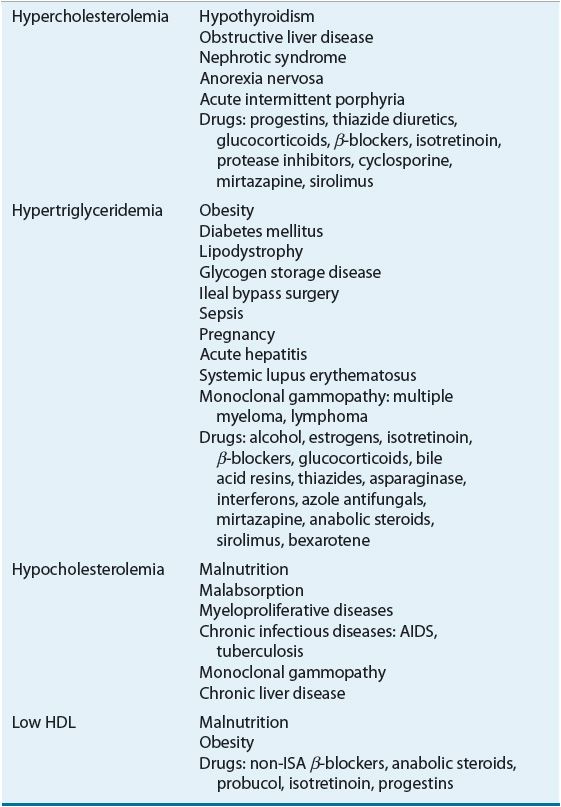
Hyperlipidemia is a condition of the blood that is related to the accumulation of triglycerides. It is often asymptomatic, but if left untreated, it can lead to serious conditions like heart disease and pancreatitis. Some of the warning signs of hyperlipidemia include fatty deposits in the iris of the eye and tendons, which can be difficult to spot and cause pain. In rare cases, these fatty deposits can cause a painful, yellow lesion in the skin around the eyes.
While many people have high blood fats, it is important to remember that the cause of your high cholesterol level is not always obvious. Some people may be suffering from a medical condition that is causing their higher levels of blood fats. In such cases, the doctor may prescribe a medication to treat the disorder. Often, it will be a result of inadequately diagnosed or controlled Type 2 diabetes. In other cases, the patient may have a condition called insulin resistance.
Some people may develop high levels of triglycerides when they are not overweight. A higher level of triglycerides in the blood has been linked with heart disease and atherosclerosis. The best way to treat this condition is to make your life healthier by lowering your stress and maintaining a healthy diet and physical activity. If you have a family history of high blood fats, you should also consider genetics. There are over 100 genes that affect how your body handles blood fats. Even a small change in one gene can cause a rise in your cholesterol and triglycerides. In fact, if you have multiple genes, this can be a cause for concern.
However, while genetic conditions can cause high triglyceride levels, they don’t increase your risk of heart disease. If you have high triglyceride levels, your health care provider will recommend lifestyle changes or medicines. Before making any major lifestyle changes, it’s important to discuss the results of your lab tests with your health care provider. You should also know how to interpret your test results and how to improve your lifestyle and diet to lower them.
Several factors can lead to high triglyceride levels, including a fatty diet and smoking. Despite the fact that it can seem like an ominous condition, high triglyceride levels can actually be a sign of a heart attack. They can also result in an enlarged liver or pancreas. In the worst case, elevated triglycerides can even lead to an artery blockage.
Having high lipid levels is a sign of a metabolic syndrome, and can result in a heart attack or stroke. Some people with high triglyceride levels can also develop yellowish fatty bumps on their skin. To prevent these, they should try to avoid eating fatty foods, exercise, and stop smoking. Some doctors may prescribe medicine to reduce the amount of triglycerides in the blood.
Besides the presence of triglycerides, high triglycerides may also be an indicator of a higher risk of heart disease. These blood fats can cause various types of cardiovascular problems, including atherosclerosis. For example, the high levels of triglycerides may be an indicator that a person has too many triglycerides in their blood. Although high triglycerides can lead to other types of fatty conditions, they are often associated with other problems such as diabetes, high blood pressure, and obesity.
There are several causes of high blood triglycerides. Some people are born with high triglyceride levels, and it is a common side effect of the genetic condition. Some individuals may have a family history of the condition and suffer from symptoms such as abdominal pain, enlarged liver, and pancreas. In other cases, the disease may be a symptom of another ailment.
The high levels of triglycerides in the blood are a warning sign that you may have high blood fats. Excessive triglycerides may lead to atherosclerosis, a heart attack, or other complications. This condition is often treated with medication and lifestyle changes, but it’s best to consult a health care provider first to avoid any major health risks. In addition, learning about the ranges of normal and abnormal triglycerides can help you make decisions regarding the best treatment.
